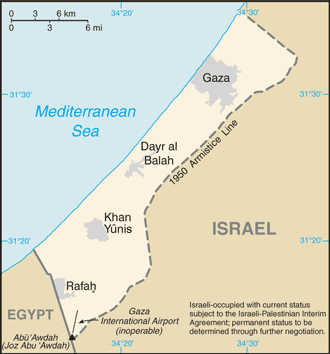In response to The Israel Project’s Global Language Dictionary which includes 25 Rules for Effective Communication for activists who want to win the hearts and minds of Americans over to Israel, I offer my list of 10 Rules for Effective Communication to win the hearts and minds of Western audiences for real peace in the Middle East.
Rule #1 – Listen as much as you speak. You will certainly pick up clues about how others understand the Middle East conflict and will undoubtedly enrich your own understanding.
Rule #2 – Talk about the past. Know the history of the Balfour Declaration, the Nakba and the Six Day War. You can’t hope to find a path towards a just and lasting peace if you don’t know the path that has been traveled.
Rule #3 – Every conversation must include the word “Occupation”. The western mainstream media and politicians avoid this word at all costs, but there is no context for a conversation about the Middle East without discussing the occupation.
Rule #4 – Don’t normalize the occupation, the siege, the conflict. Be wary of falling into the trap that so often appears when discussing the occupation, the siege, and the conflict — that this life is somehow normal. IT IS NOT NORMAL! It may be complex, but it is not normal.
Rule #5 – Don’t be shy about calling a spade, a spade! Or calling the occupier, the occupier. You may be called an anti-Semite, or worse, in an effort to shut you up, but stick to the facts and avoid inflammatory language. Avoid the term “terrorist” — it is overused and always in the eye-of-the-beholder.
Rule #6 – Stay cool. If you feel your blood pressure rising during the conversation, stop, listen and think about why you’re reacting this way. You can’t be an effective advocate for peace if inside you feel like making war!
Rule #7 – Avoid generalities. Remember there is a distinction between the government and the people.
Rule #8 – Don’t demonize the “other”. Some people have been raised to think the “other” side (Israeli or Palestinian) is evil, subhuman, unworthy of respect. When you hear demonization creep into the conversation, call it out and reject it.
Rule #9 – Listen some more. Don’t think about how you want to respond while the other person is speaking. Listen deeply and intently. If you don’t have words to respond, silence is good.
Rule #10 – Remember, the world is changed by your example, not by your opinion. – Paulo Coelho






Yes, talk about the occupation. The 20 years of Egyptian and Jordanian occupation of Gaza, Judea and Samaria, and why they didn’t create a Palestinian state when they had all the means.
I don’t know that history as well as I should…….but someone else made the same comment about a year ago. I’m wondering if that’s a “talking point” among the pro-Israelis. What is your point? That the Palestinians lost their chance when they had it ….. tough luck? Or perhaps your point is that the Palestinians are incapable of self-governance? I dunno. But I don’t find your comment helpful.
The point is that the creation of a Palestinian state is not an Arab goal, the destruction of the Jewish state is. If the creation of a Palestinian state would be an Arab goal, they’d have created it long ago.
Well damn! I didn’t know that the proposal by the Arab League in ___ (let me look up the year) at the UN to create a Palestinian state was just HOT AIR!
I didn’t know the years of negotiations in Washington DC, in Madrid, and Oslo were just HOT AIR!
I didn’t know that the Palestinian negotiator I met in Gaza was just full of HOT AIR!
Thanks for your insight.
Yes, look it up. If it was between 1948 and 1967, let us know.
I am not your history teacher. You asked a question … I encourage you to search for the answer that makes sense to you.
You say “Talk about the past. Know the history”…
You promised to “look up the year” in which the the Arab League proposed at the UN to create a Palestinian state. My guess is that you’ve looked it up, found it was nowhere near the period in which Arabs controlled all of Gaza, Judea and Samaria and now are stuck with the question why the hell the Arabs didn’t actually create the Palestinian state when they had all the means.
Well, what about the history? What prevented the establishment of a Palestinian state between 1948 and 1967?
You’re guessing that I’ve looked it up?!? Haha! You are jumping to a lot of conclusions. I’ve been working in the garden all day. I have a life beyond the computer.
Why don’t you look it up and tell me what you find. When I have time, I will check too. This can be a joint exercise.
This is helpful. Thanks.